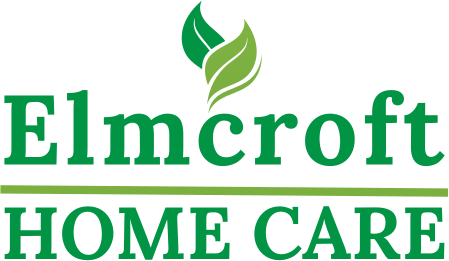Picture this: You stop by your dad’s house for a quick visit, and something feels off. The kitchen counter is cluttered with unopened mail, the fridge holds little more than a half-empty jar of pickles, and he’s wearing the same sweater he had on last week. These little changes might seem minor, but they could be clues that your aging loved one is struggling to manage at home. As our parents, grandparents, or other cherished elders grow older, their ability to live independently can shift, sometimes in ways that are hard to notice at first. Recognizing these signs early can make all the difference in ensuring their safety, comfort, and dignity while they age in place.
With more seniors choosing to stay in their homes—where memories and familiarity provide comfort—it’s crucial for families to stay observant. The U.S. Census Bureau projects that by 2030, one in five Americans will be over 65, meaning many of us will face decisions about how to support our aging loved ones. This article dives into the subtle and not-so-subtle signs that your parent, grandparent, or aunt might need a little extra help at home. By spotting these red flags and approaching the conversation with care, you can help them live safely and confidently for as long as possible.
Why Recognizing the Need for Help Matters
Aging in place is a goal for many seniors, offering independence and a sense of home. But growing older often brings challenges—stiff joints, foggy memory, or just feeling lonelier than before—that can make daily life harder than it used to be. As family members or close friends, we’re often the first to notice when something’s amiss. Maybe your mom used to keep her house spotless but now lets dishes pile up. Or perhaps your uncle, once a social butterfly, hasn’t left the house in weeks. These changes aren’t about failure; they’re part of aging. The key is catching them early so you can step in with support that respects their independence.
Observing these shifts isn’t about taking away their freedom—it’s about helping them thrive. It’s also about peace of mind for you, knowing they’re safe and cared for. Below, we’ll walk through the key signs to watch for, grouped into physical, cognitive, emotional, and environmental categories, so you can better understand when it’s time to act.
Key Signs Your Loved One May Need Assistance
Physical Health and Mobility Issues
One of the first places to look for clues is your loved one’s physical well-being. Aging can take a toll on the body, and small changes in how they move or care for themselves can signal a need for help. For instance, if your aunt, who always prided herself on her neat appearance, starts wearing stained clothes or skips showers, it might mean bathing or dressing has become physically challenging. Similarly, if your dad struggles to get up from his favorite armchair or hesitates to climb the stairs, mobility issues could be at play. Falls are a major concern—about one in four seniors falls each year, according to the CDC—so unexplained bruises or scrapes might hint at accidents they’re not mentioning.
Pay attention to their eating habits, too. If your mom’s fridge is nearly empty or she’s relying on cereal for every meal, preparing food might be too tough. Weight loss or gain can also point to nutrition problems, which can spiral into bigger health issues if ignored.
Cognitive and Mental Health Changes
Cognitive changes can be harder to spot but are just as critical. Memory slips, like forgetting a grandchild’s birthday, are normal as we age, but consistent issues—like misplacing keys daily or asking the same question repeatedly—could suggest early cognitive decline. If your uncle seems confused about familiar routines, like paying bills, or gets lost driving to the grocery store he’s visited for decades, it’s worth noting. Mismanaging medications is another red flag. Finding a pill bottle with missed doses or extra pills scattered around can signal trouble, and it’s risky—improper medication use leads to thousands of hospitalizations annually.
Mood changes are also telling. If your normally cheerful grandma seems withdrawn or snaps at you out of the blue, she might be grappling with anxiety, depression, or even the early stages of dementia. These shifts aren’t always obvious, so look for patterns over time.
Emotional and Social Isolation
Aging can sometimes feel like a shrinking world. If your dad stops going to his weekly poker night or your mom no longer chats with neighbors, it could be more than just a phase. Social isolation is a growing concern for seniors, with studies showing it can increase risks of depression and even physical health problems. Loneliness might show up as disinterest in hobbies they once loved, like gardening or knitting, or as a reluctance to answer calls. If your loved one expresses feelings of hopelessness or seems unusually tearful, it’s a sign they may need emotional support or help reconnecting with their community.
Environmental and Household Red Flags
Sometimes, the state of your loved one’s home tells the story. A house that was once tidy might now have cluttered counters, unwashed laundry, or an overgrown lawn. These aren’t just aesthetic issues—they can point to physical or cognitive struggles. For example, if your grandpa’s mailbox is overflowing with unopened bills, he might be overwhelmed by managing finances. Safety hazards, like loose rugs or dim lighting, are also concerning, as they increase fall risks. Check the kitchen, too: expired food or a lack of fresh groceries might mean your loved one isn’t eating properly or can’t shop easily. And in today’s world, falling for scams—like unusual charges on their bank statement—can indicate cognitive or financial management issues.
How to Approach the Conversation
Spotting these signs is only the first step. Talking to your loved one about needing help can feel daunting—they might bristle at the idea or feel their independence is under threat. Approach the conversation with empathy. Instead of saying, “You can’t live alone anymore,” try, “I’ve noticed the house is getting hard to keep up with—can we talk about ways to make things easier?” Include them in decisions to preserve their dignity. Maybe start by suggesting small changes, like a weekly cleaning service or a medical alert system.
If you’re unsure where to begin, consider looping in a professional. A doctor or geriatric care manager can assess their needs and offer neutral advice. Be patient—your loved one might need time to warm up to the idea of help.
Next Steps: Options for Assistance
Once you’ve identified the need, there are plenty of ways to support your loved one at home. In-home care services, like home health aides or meal delivery, can handle tasks from bathing to cooking. Family members or neighbors can pitch in with regular check-ins or grocery runs. Simple home modifications—grab bars in the bathroom, better lighting, or a ramp for easier access—can make a big difference. If needs become more complex, assisted living might be worth exploring, but many seniors can stay home with the right support.
For guidance, check out resources like AARP, your local Area Agency on Aging, or eldercare.gov. These organizations offer practical tools and advice tailored to your loved one’s situation.
Conclusion
Watching a loved one age can stir up a mix of emotions—love, worry, and a desire to help them stay safe. By keeping an eye out for signs like mobility struggles, memory lapses, or a neglected home, you’re taking a proactive step toward their well-being. It’s not about pointing out flaws; it’s about ensuring they can live with comfort and dignity. Start with a gentle conversation, explore options together, and tap into resources that can lighten the load. Helping your loved one age in place is a gift—one that honors their independence while keeping them safe for years to come.

